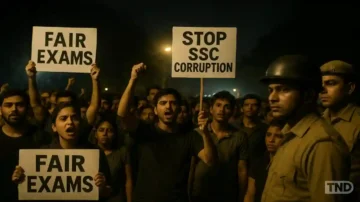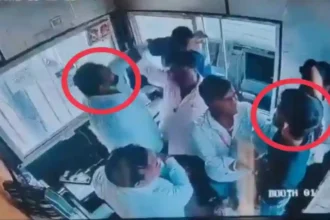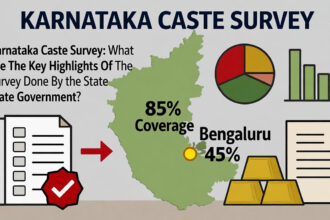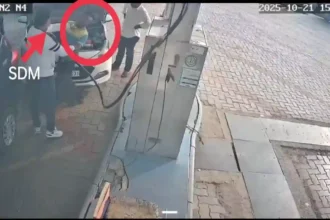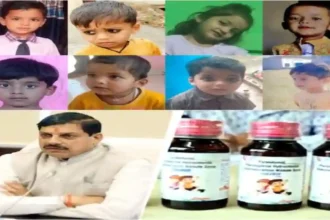Hyderabad, Telangana – In recent days, Telangana has witnessed an unsettling development – the emergence of the Marwadi Go Back campaign, which is directly targeting Rajasthani and Gujarati traders in the state. What initially began as murmurs on local forums and sporadic posters has now gained traction, creating fear and uncertainty within the trading community. Community leaders are calling the campaign hate-driven, labeling it dangerous for the state’s long-standing image of inclusivity and commercial harmony.
This incident also comes at a time when neighboring Maharashtra is battling its own tensions. There, non-local communities faced physical attacks amid a heated Marathi language row. With two back to back instances of outsider targeted hostility, concerns are growing over whether this is merely spontaneous unrest or a politically motivated pattern emerging across states.
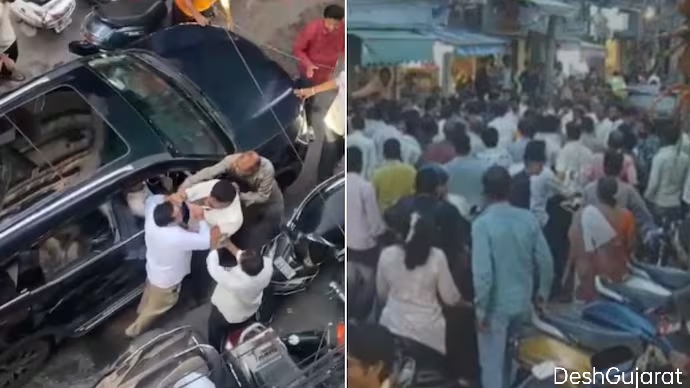
What is the “Marwadi Go Back” campaign?
The Marwadi Go Back campaign is essentially a social push – both online and offline – that calls for the expulsion of traders belonging to Rajasthani and Gujarati communities from Telangana. These communities have historically played a key role in trade, finance, and wholesale markets, not just in Hyderabad but also in Tier-2 cities like Warangal, Karimnagar, and Nizamabad. Their contribution to textile, jewelry, grocery, and real estate sectors is undeniable.
However, the campaign attempts to paint them as outsiders who are “controlling” local businesses and marginalizing indigenous traders. This rhetoric mirrors historical anti-migrant agitations in India, where economic competition often fuels identity-based hostility.
Why are traders being targeted?
Experts point to three broad reasons behind the Marwadi Go Back campaign:
1. Economic Competition: Marwadi and Gujarati traders are traditionally strong in business acumen. Their dominance in wholesale and retail sectors often creates resentment among smaller local traders who feel economically overshadowed.
2. Political Opportunism: Identity-based politics thrives on drawing lines between “locals” and “outsiders.” With Telangana’s political landscape preparing for another round of elections, fueling such narratives can create electoral dividends by appealing to regional sentiments.
3. Copycat Effect from Maharashtra: The timing of the campaign is crucial. Just days before its surfacing in Telangana, Maharashtra witnessed attacks on outsiders and an intensifying Marathi language row. The similarity in patterns suggests that Telangana’s unrest may be an extension of this larger regionalist sentiment, possibly inspired or amplified by vested groups.
Is it politically motivated?
The question remains central: is the Marwadi Go Back campaign a natural outburst of economic resentment, or is it being politically engineered? Analysts suggest that while economic tensions are real, such movements rarely gain sudden visibility without backing.
Political Timing: Telangana is no stranger to identity politics. The very formation of the state in 2014 was based on the demand for protecting local identity and opportunities. Against this backdrop, reviving an “us versus them” narrative serves as a convenient political tool.
Online Amplification: Hashtags and coordinated social media posts suggest organized efforts rather than organic anger. Political outfits or fringe groups could be testing the waters for larger mobilizations.
Electoral Stakes: With urban constituencies holding sway, targeting outsider communities can help consolidate local trader votes, particularly among the middle and lower-income groups who feel bypassed by larger business networks.
Thus, while the campaign draws from genuine insecurities, its speed and scale indicate possible political undercurrents.
Dangerous consequences for Telangana’s economy
If the Marwadi Go Back campaign escalates, the consequences could be devastating:
Loss of Investor Confidence: Telangana, especially Hyderabad, has worked hard to project itself as an investment hub. Hostile campaigns create doubts among investors about social stability.
Business Disruptions: Rajasthani and Gujarati traders form a large part of Telangana’s supply chain. Any exodus or reduced participation could disrupt markets, affecting availability and prices of essential goods.
Communal Tensions: When campaigns target communities, they risk transforming from economic rivalries into communal clashes. Once that line is crossed, peace becomes harder to restore.
What authorities must do
Community leaders have rightly urged the state government to step in before the issue spirals out of control. Three urgent steps are necessary:
1. Swift Law Enforcement: Identify and act against those spreading the campaign through posters, social media, and public intimidation.
2. Confidence Building: Telangana’s leadership must reassure the business community that their safety and interests are protected.
3. Dialogue with Traders: A platform for local and outsider traders to address grievances could prevent further hostility and foster cooperation.
Conclusion
The Marwadi Go Back campaign in Telangana is not just a passing slogan it is a reflection of deeper insecurities, regional politics, and economic anxieties. While resentment against successful trading communities is not new, the sudden visibility of this campaign raises red flags about possible political orchestration.
Telangana stands at a crossroads. If it allows such campaigns to grow unchecked, it risks undoing years of progress as a cosmopolitan and business friendly state. However, timely intervention, balanced leadership, and reassurance to all communities can turn the tide.
Whether politically motivated or not, one thing is clear: campaigns like these only fracture society. Telangana’s true strength has always been its diversity and entrepreneurial spirit. Undermining that would be a loss not just for Marwadi or Gujarati traders, but for the state as a whole.




